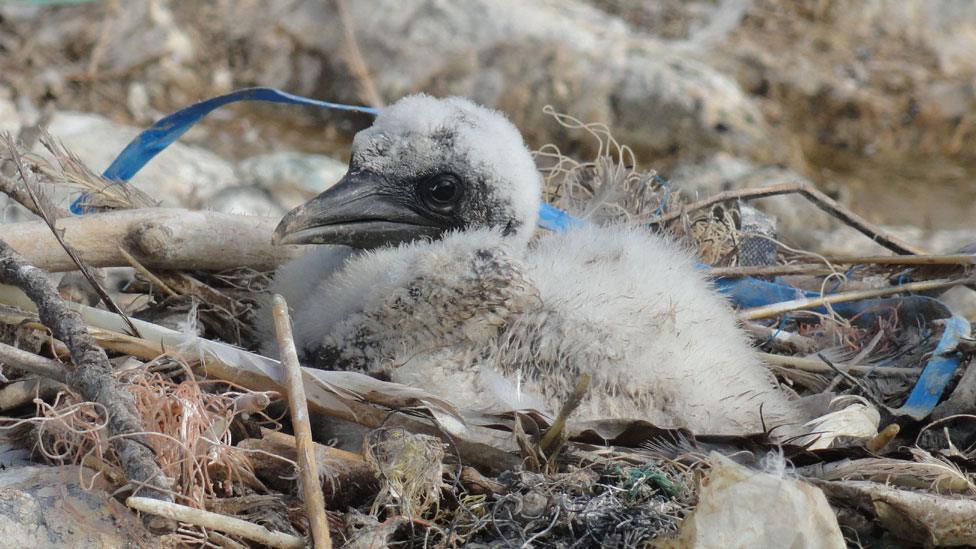Scotland signs up to global 'ghost gear' pledge
- Published
- comments
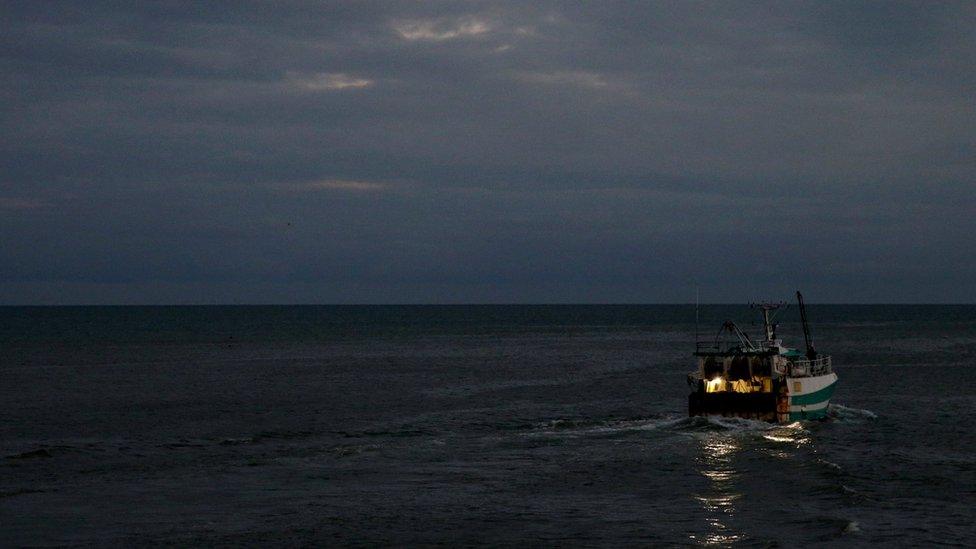
Thousands of tonnes of fishing gear are lost or discarded at sea every year, say campaigners
The Scottish government has joined a global effort to reduce the amount of fishing equipment being lost or discarded at sea.
Dubbed "ghost gear", the nets and other equipment can entangle and kill fish, whales, turtles and seabirds.
Scotland has been signed up to the Global Ghost Gear Initiative which aims to cut an estimated 640,000 tonnes of material abandoned or lost every year.
Fishing industry leaders, academics and other governments are involved.
The Scottish government said it had been working for a number of years with the Scottish Fishermen's Federation and local authorities international environmental organisation, Kimo, on tackling marine pollution.
Kimo's Fishing for Litter effort has retrieved 1,200 tonnes of litter from the seabed since 2005, including ghost gear, said the government.
'Untold suffering'
Environment Secretary Roseanna Cunningham said Scotland joining the initiative was a further step towards reducing marine pollution.
She said: "Signing up to this initiative demonstrates our support for global action to tackle the problem of ghost gear in order to prevent the needless entanglement of wildlife in the future."
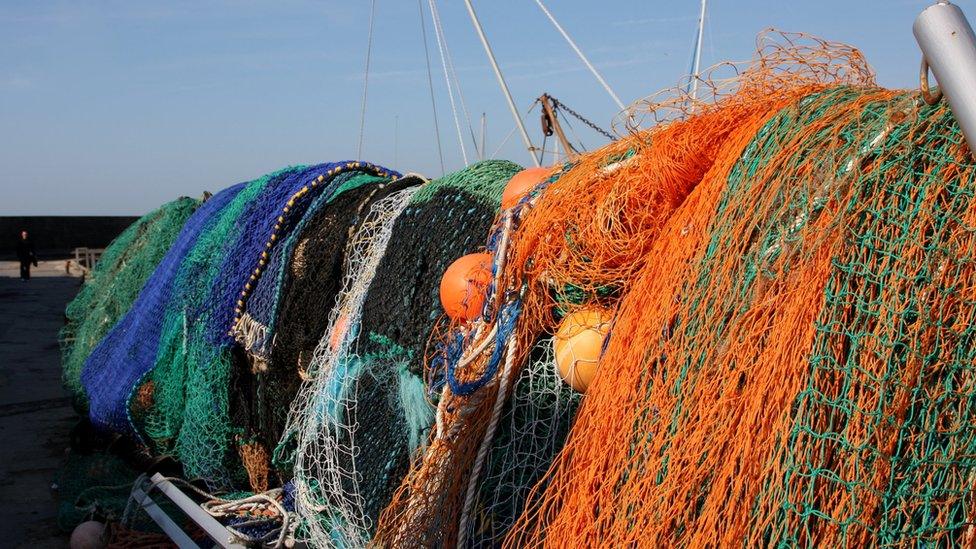
The fishing industry is also involved in the initiative
Chiara Vitali, from the ghost gear initiative's organisers World Animal Protection, said: "We are delighted that Scotland has committed to join the Global Ghost Gear Initiative.
"More than 640,000 tonnes of fishing gear is lost or abandoned in the ocean every year, and it can continue to catch and kill animals for hundreds of years, causing untold suffering.
"We hope that this new announcement will encourage other industry and government representatives to join our effort to rid the sea of ghost gear and create safer, cleaner environments for our marine wildlife."
Marine plastic pollution has become an increasing problem, and has been highlighted in episodes of the BBC's Blue Planet II documentary series.
Plastic pollution
Scientists in Scotland have also been raising awareness on the issue.
A study published earlier this year suggested a high prevalence of seabirds swallowing plastic.
Another piece of Scottish research reported that tiny pieces of plastic were being found in deep sea creatures, such as sea stars.
Last month, a seal pup was saved after getting tangled up in a length of plastic net in the Western Isles.
Earlier this month, a leatherback turtle tangled in rope and a buoy was freed by the crew of an Orkney fishing boat.
- Published18 December 2017
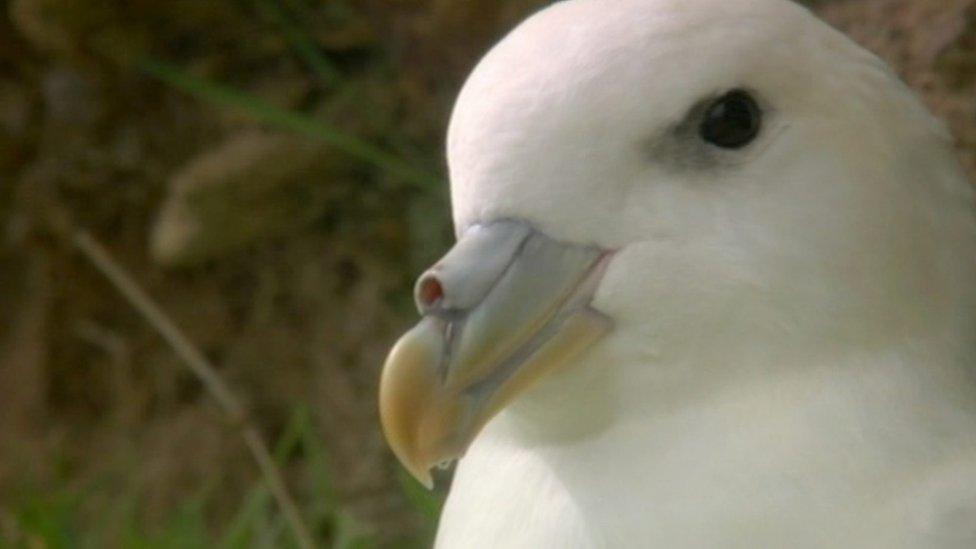
- Published12 December 2017
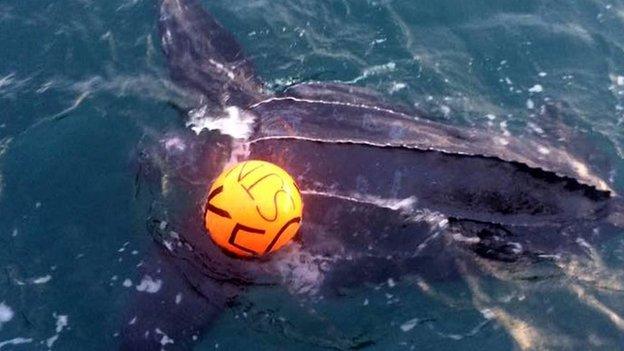
- Published29 November 2017
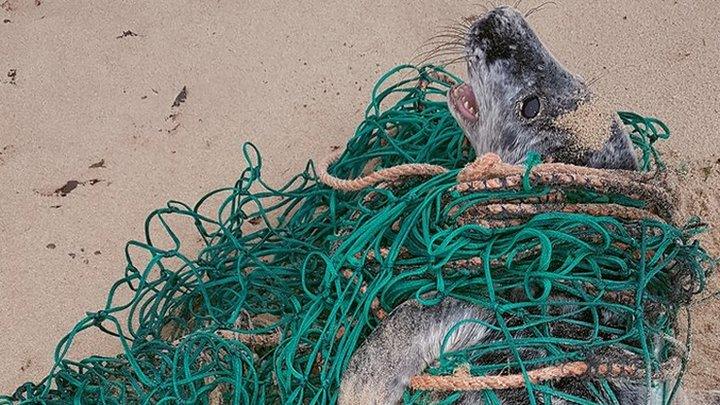
- Published20 September 2017
